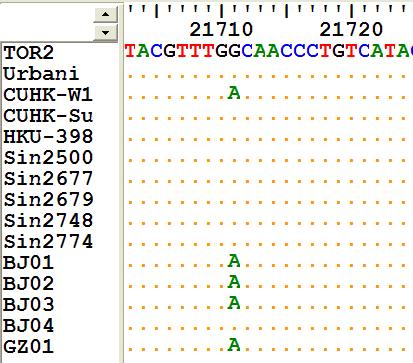|
The origin of human genetic variability from
cross-species comparisons: the truth about Blast
Why are we different?
 Your DNA is over 99% identical to Brittany Spears'. A sobering thought perhaps, one that might well stop you from making the usual extension: "99%... close enough!". It isn't close enough. That 1% is what distinguishes one person from another.
Your DNA is over 99% identical to Brittany Spears'. A sobering thought perhaps, one that might well stop you from making the usual extension: "99%... close enough!". It isn't close enough. That 1% is what distinguishes one person from another.
There are an estimated 10 million single base differences, or polymorphisms (SNPs) in the human population. Those that have been characterized are invaluable in the study of genetically-based diseases and population genetics. They can also be used to help us understand where genetic differences come from. What are the mechanisms by which mutations arise in the human population?
To answer these questions, you are looking at SNPs in human chromosome 21, asking where they occur and what kind of mutations are most common. This last is not an easy question to answer. In the above example, how could you tell whether some ancestral G mutated to A or vice versa?
Back to main Scenario page continue
|

